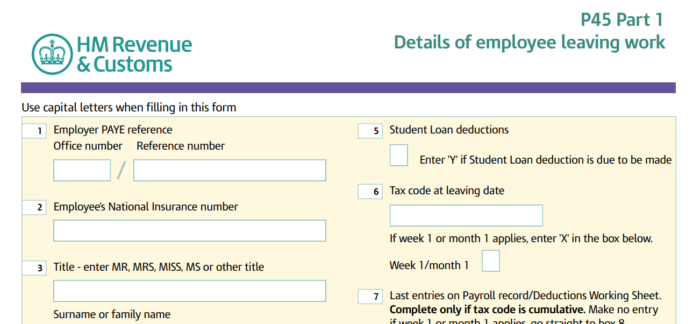Everything you need to know about notice periods for employees in the UK
Everything you need to know about notice periods for employees in the UK, by Carolyne Wahlen from Golf HR.
Employees leave businesses all the time – it’s a fact of life.
The question is: how should they depart and what do you need to do to ensure that not only are you staying on the right side of the law, but also doing the right thing by your organisation?
And if you know you’ve got gaps in your knowledge when it comes to notice periods, you’re in luck – we’re going to fill those in, right now.
How to give notice
Notice should be given in person and then confirmed in writing.
If they give notice to you verbally, in person or on the phone, you must confirm this via email or in an official letter.
How much notice has to be given?
It depends on whether you have a signed employment contract with them.
If you have a written employment contract for the employee, check what’s in the contract – it’s normally one or two weeks during the trial period, and often then increases to one month. The contractual notice period cannot be any shorter than the statutory notice period.

What if they don’t have a written contract?
Any worker you hire has rights under employment law, even without a written contract. If there is no contract, then the statutory notice periods apply. This means that an employer can give instant notice in the first month of working and then one week’s notice for every completed year of service, up to 12 weeks’ notice.
The employees, however, if they have no written contract, only need to give you one week’s notice, no matter how long they have been working for you. Make sure that you do give them a written contract!
Do I have to pay their notice period?
Yes. Unless:
– They refuse to work it; or
– They resign with immediate effect; or
– You’ve gone through a full disciplinary process (investigation, disciplinary, appeal) to prove gross misconduct.
With the correct clause in their contracts, if they decide they don’t want to work their notice period, then you not only don’t have to pay them, you can also deduct one day’s pay for every day of the notice period not worked.
However, if YOU tell them they can leave straight away, you’ve still got to pay them.
Should they work the notice period?
As a non-negotiable first step, before they leave the premises on their last day (whenever that is), you need to ensure you get a handover – do not let them leave the building and do a handover later on; it probably won’t happen.
There are three options when notice has been given, on either side:
• Employee works notice period and will be paid as normal.
• Put the employee on garden leave and pay them as normal. They remain a full employee until the end of the notice period.
• Pay the employee in lieu of notice (PILON), which means they are no longer an employee.

Garden leave
The employee remains an employee, with all their normal benefits, but they don’t come to work, or do any work.
You’re within your rights to get them to take any outstanding holiday entitlement during this period too, as long as you give them enough notice (twice as much written notice of holiday as the length of holiday).
They’re not able to work for anyone else during garden leave.
PILON
They do not work their notice; they are not on gardening leave. You remove them from payroll immediately and pay them all the monies they are owed, and issue them with their P45. You are not allowed to pay this amount tax-free (law changed in 2018).
The benefit of PILON is that they’re no longer an employee, so if they raise a grievance after their termination date, then you do not have to follow the full ACAS procedures to deal with it.
Instead, you can just respond in writing and do not have to do any meetings. We strongly recommend using this option for those employees when you are sure they will be difficult.

Which is best?
Never ask the employee what they would like to do; this is your decision.
If they’ve resigned – we’d usually expect them to work their notice period if they are still likely to be motivated.
If you say you want them to work their notice period, and they refuse, then you do not have to pay them their notice. You can allow them to negotiate a shorter notice period with you if that works for you, but make sure that they understand they will not be paid for the notice period if they leave early.
If you have terminated them – we would not recommend getting them to work their notice as there are likely to be motivational issues and they could cause problems with other team members.
We strongly recommend putting them on garden leave if they have a lot of holiday to use up, and they are unlikely to raise any grievances during this period.
If you have terminated them and there is a high probability of a grievance being raised, then use PILON and get them off the payroll as soon as possible.
For further advice on this matter or any other staff or member issue affecting your golf club, please contact Carolyne Wahlen, Golf HR, on cw@golfhr.co.uk or 01491 598 700















Let me tell You a sad story ! There are no comments yet, but You can be first one to comment this article.
Write a comment